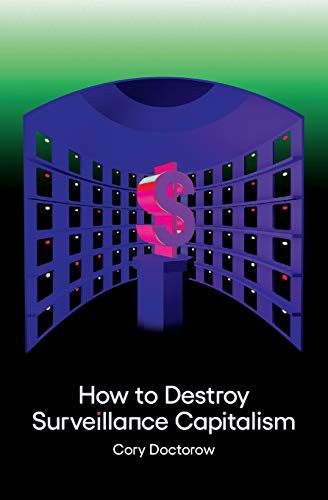A Very Wonky and Well-Written Guide to Trustbusting Tech Billionaires
5 stars
OK, so this book is kind of right in Cory Doctorow's wheelhouse. Sure, he writes really insightful fiction that is really fun to read, but he truly shines when when writing concise, easy-to-understand non-fiction about social and policy issues surrounding technology.
This book definitely isn't for everybody, but if you're interested in the political, economic, and social tools that can be used to unseat the tech billionaires and destroy surveillance capitalism then this is 100% something that you should consider reading.
One important connection that Doctorow made was how the military/government have become reliant on big tech surveillance. If you didn't want to throw out your Google/Amazon "smart" device before, you probably will after reading this book.
OK, so this book is kind of right in Cory Doctorow's wheelhouse. Sure, he writes really insightful fiction that is really fun to read, but he truly shines when when writing concise, easy-to-understand non-fiction about social and policy issues surrounding technology.
This book definitely isn't for everybody, but if you're interested in the political, economic, and social tools that can be used to unseat the tech billionaires and destroy surveillance capitalism then this is 100% something that you should consider reading.
One important connection that Doctorow made was how the military/government have become reliant on big tech surveillance. If you didn't want to throw out your Google/Amazon "smart" device before, you probably will after reading this book.



